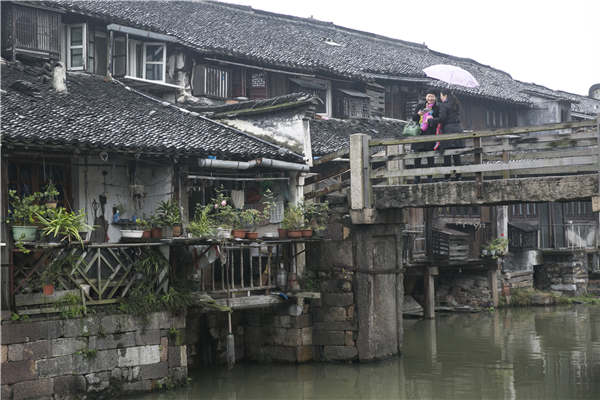Building bridges
"Wuzhen was a military stronghold that could provide necessary money and food. No matter which army occupied it, they would try to protect the town," Zhou says.
The town's main river, Shihe, runs 1,500 meters from north to south, connecting smaller rivers along the way.
Many rivers branch out to form the water system.
Ferries were important means of transport in olden days, and bridges were vital to local people.
By the time the Song Dynasty (960-1279) came to power, there were 72 bridges. The number rose to 122 in the Ming Dynasty (1368-1644). Some bridges were destroyed in wars. Others became redundant when people began to prefer motor vehicles to boats.
Today, there are more than 30 bridges left, including "double bridges", built according to an architectural style unique to Wuzhen.
The most famous double bridges are Tongji and Renji in the Xizha tourism area. They were built before the Ming Dynasty. Tongji bridge, which spans a river running north to south, and Renji bridge, which spans a river running east to west, form a right angle.
All the town's ancient bridges are carved with couplets.
























